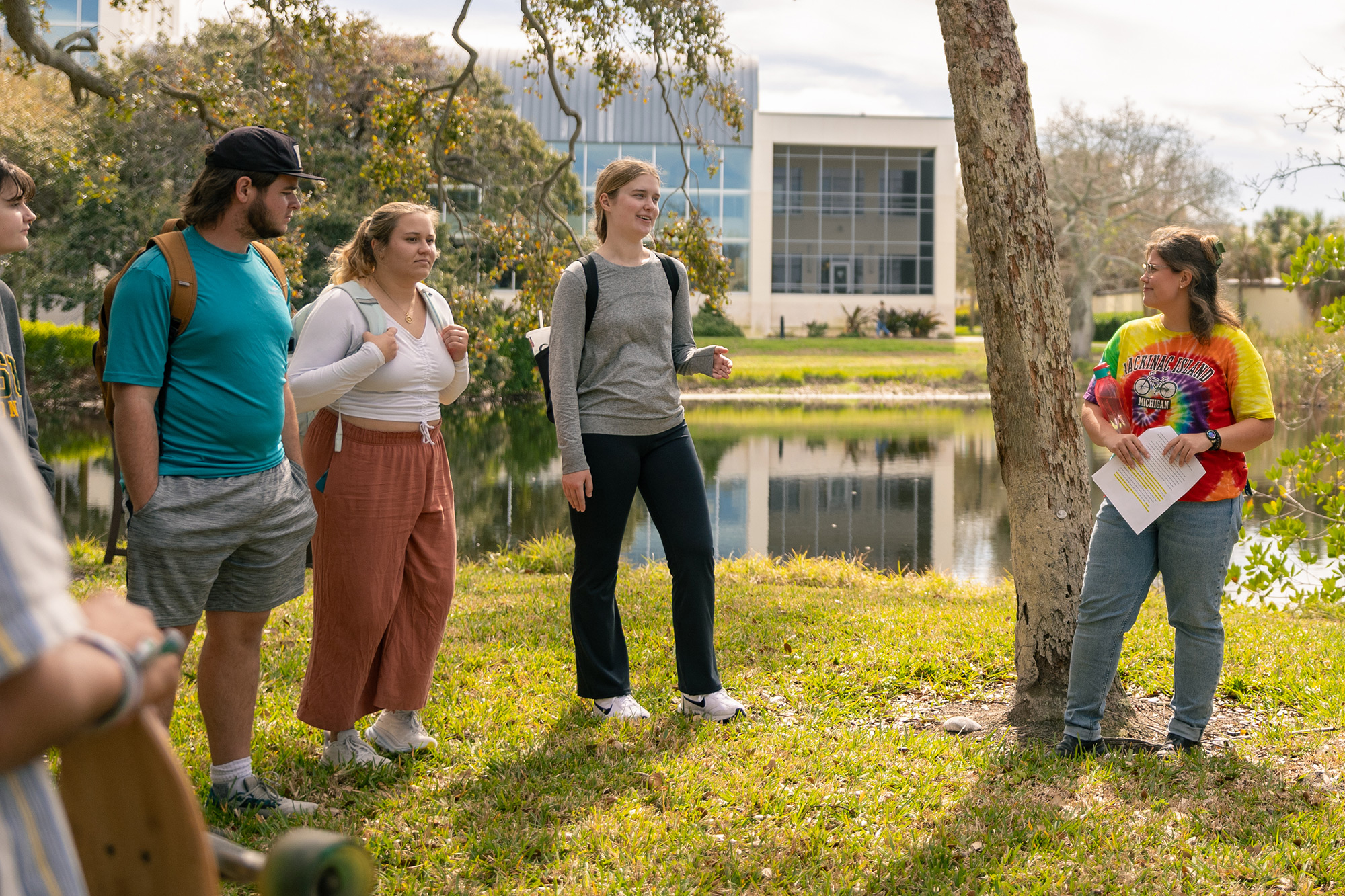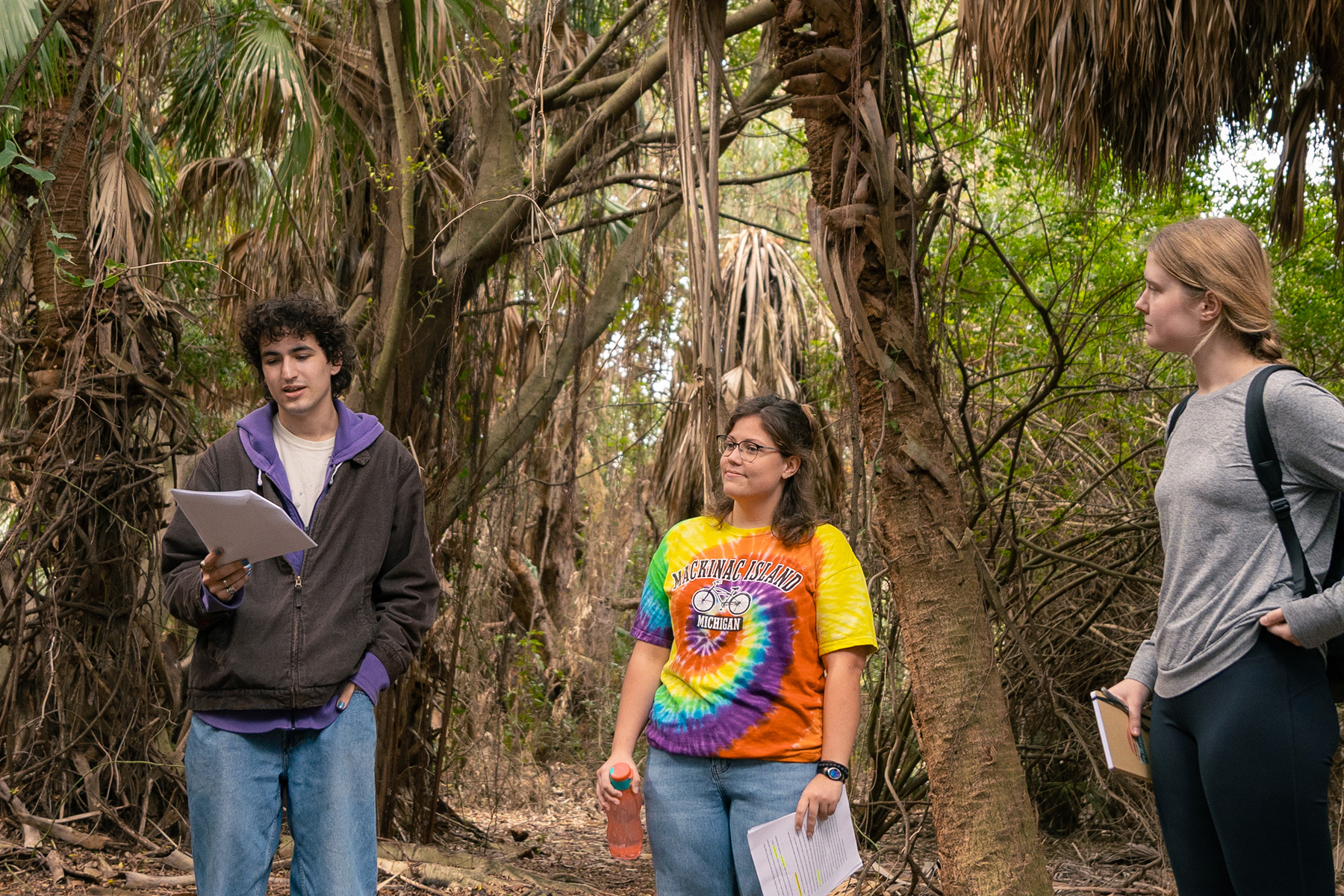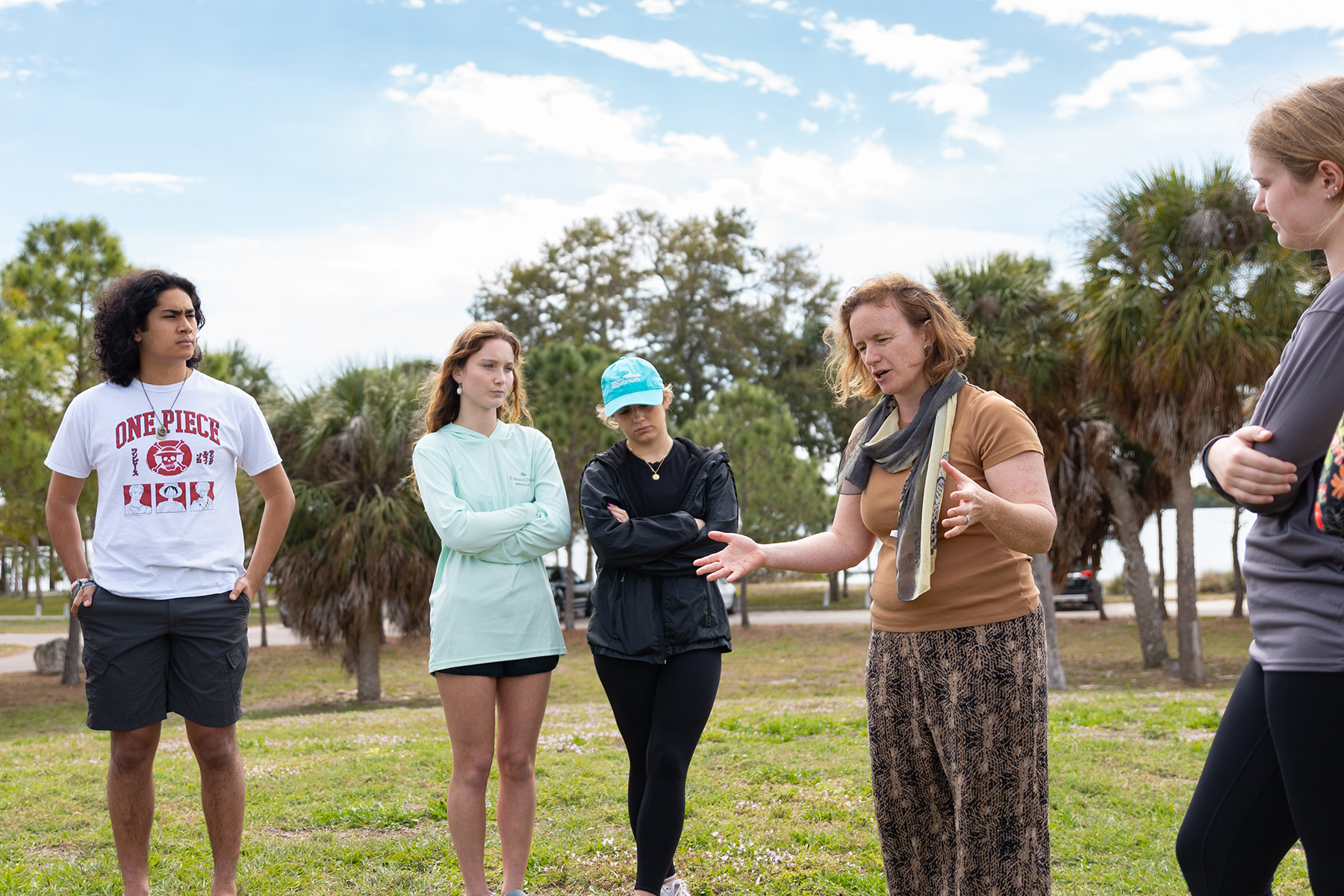Maddy Vashaw grew up in Pulaski, New York, along the eastern shore of Lake Ontario. Ever since she was in middle school, she dreamed of becoming a marine scientist. Now, as a junior marine science and economics student at Eckerd College, she’s on her way to doing just that.
And she recently received a major boost. After more than a year of planning, Maddy and six other Eckerd students were selected to form the College’s inaugural group of Gulf Scholars.
In October 2022, Eckerd was named as one of six colleges and universities in the second cohort of the National Academies of Sciences, Engineering and Medicine Gulf Research Program’s Gulf Scholars Program—a five-year, up-to-$449,901 pilot program designed to prepare undergraduate students to address the most pressing environmental, health, energy and infrastructure challenges in the Gulf of Mexico region.
The campuswide, place-based education programs engage students and faculty from a broad range of academic disciplines to cultivate interdisciplinary knowledge and prepare students to address challenges at the intersections of social, environmental and energy systems to ensure a safer, more resilient, equitable and sustainable Gulf region.
Eckerd’s Gulf Scholars will take intensive courses in the spring and fall semesters and wrap up their program with a Reflective Service Learning course in Winter Term—a one-month, one-class term in January.
The director of the Eckerd College Organization of Students’ Environmental Responsibility Committee, Maddy says she’s always looking for different opportunities to expand her education and research. “And the program sounded amazing and just what I wanted. It’s also based in the area where I hope to work further.
“One of the best parts for me,” she adds, “is that there are other students like me who have the same passion for marine science. It’s like finding your niche, and that feels very comforting.”
The six other Eckerd Gulf Scholars are Chloe Arma, a junior environmental studies and marine science student from Manorville, New York; Carly Harshbarger, a junior environmental studies student from Oviedo, Florida; Dai Goebel, a sophomore animal studies and marine science student from Fargo, North Dakota; Nilo Khoury, a junior marine science student from Vienna, West Virginia; Elizabeth Pellegrini, a junior marine science student from Nantucket, Massachusetts; and Robert Shedden, a sophomore environmental studies student from St. Petersburg.
“We at Eckerd were deeply honored to have been invited to apply,” says Amanda Hagood, Ph.D., an animal studies instructor and one of the grant’s principal investigators along with Professor of Literature Daniel Spoth, Ph.D. “All the other schools are much larger, so this is a real feather in our cap. We are the only small liberal arts college in the consortium.
“Because it’s a collaborative effort,” Hagood adds, “it creates a great opportunity for our students to interact with scholars across the region and connect with larger research networks. But Eckerd also benefits the program because we are a true liberal arts college and the goals of the Gulf Scholars Program are interdisciplinary, liberal arts–type goals.”
All seven students selected are majoring in environmental studies and/or marine science. “We want the students to imagine themselves as problem-solvers and changemakers within the Gulf region,” Hagood explains. “The students are going to talk about climate change, resilience planning, reduction of single-use plastics, the history of the region—and we’ll have speakers like Phil Gravinese [Ph.D., an assistant professor of marine science at Eckerd] talk about stone crabs and Gulf water temperatures.
“It’s about what the students really want to do, what they care about, and what they hope to accomplish,” Hagood adds. “Once they complete the rotation of the three classes, they can pursue faculty-guided research.”
Carly, who is an intern with the Eckerd College Reduce Single-Use Project, says she’s always been interested in the environment and conservation, “but I didn’t know too much about how problems in the Gulf affect us here in Tampa Bay and the entire area until we moved to Florida from Indiana. There have been policy changes proposed that could really affect this region. But I also feel there’s been a general lack of awareness. Not just with oil spills, but with events like Piney Point [a fertilizer site where, in 2021, roughly 215 million gallons of tainted water were released into Tampa Bay]. I’m learning more about the region through a different lens.
“And I live here now,” she adds.
“I’ve taken an interest in this region’s coastal development. If we’re going to make effective policy changes, the Gulf Scholars Program will really help. It’s so important to really understand what you’re voting for.”
The Gulf Research Program was founded in 2013 as part of legal settlements with the companies involved in the 2010 Deepwater Horizon disaster. According to the National Academies’ website, the program “seeks to enhance offshore energy system safety and protect human health and the environment by catalyzing advances in science, practice, and capacity to generate long-term benefits for the Gulf of Mexico region and the nation.
“The program has $500 million for use over 30 years to fund grants, fellowships and other activities in the areas of research and development, education and training.”
Along with Eckerd College, the program’s second cohort of institutions includes University of Central Florida, Louisiana State University, University of South Alabama, University of Southern Mississippi and Texas A&M University at Corpus Christi.
















